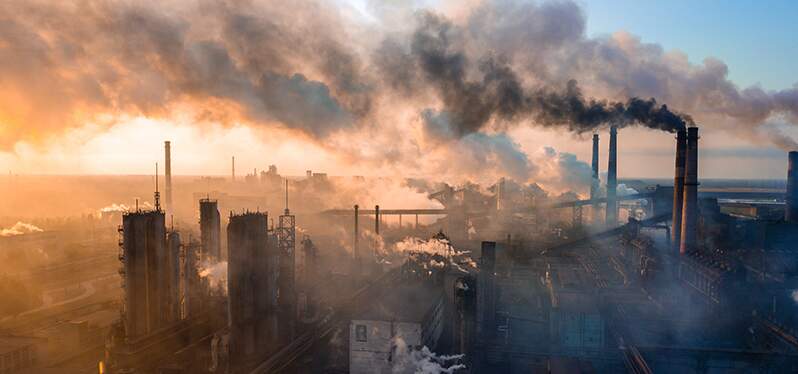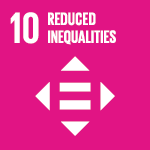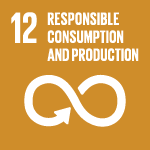Posted in: 12/02/2022
The Climate Conference held in Sharm el-Sheikh, Egypt, COP27, signaled to the market the growing importance of climate justice and its concept, evaluates Ricardo Young , president of the board of directors of the Institute for Democracy and Sustainability (IDS), former -President of the Ethos Institute and member of the Synergia Socioambiental Council.
“If the issuing countries become responsible for the losses and damages of the most vulnerable countries, what about the responsibility of companies in relation to their impacts on society?”, asks Young when commenting on the COP27 results in this interview on the Synergia website .
One of the most influential personalities in the sustainability agenda of the corporate world in Brazil, Ricardo Young is concerned about the immense difficulty of reaching a global consensus that commits the world to actions that prevent an increase in the average temperature of the planet above 1.5ºC before pre-industrial levels. But he does not consider political obstacles a plausible justification for the private sector to remain silent on the matter.
“We don’t need, as companies, to wait for the political outcome to validate what is scientific. Trends are set. If companies do not incorporate them into their strategies, they will pay a much higher price in the future with the risk of becoming unfeasible.”
*****
The approval by COP27 of the loss and damage fund was celebrated around the world as a significant victory for developing countries, especially the nations most vulnerable to climate change. Despite still lacking important definitions, such as the sources and volumes of resources, the criteria for accessing them and the governance of the mechanism, its adoption signals the importance that issues associated with climate justice have gained at COP27. What message does the approval of the damages mechanism send to the business community?
This was perhaps one of the main advances of COP27 . The concept of loss and damage is an achievement that has been going on for decades and has become inevitable in the face of increasing losses in developing countries due to extreme weather events. The floods in Pakistan, the worsening insular situation of some countries and repeated tragedies make it clear that the climate crisis bill is high and has to be paid by the countries with the greatest emissions.
For the market, the COP signals the growing importance of the concept of climate justice. If the issuing countries become responsible for the losses and damages of the most vulnerable countries, what about the responsibility of companies in relation to their impacts on society? Climate justice is here to stay, and there are market segments that bet more on the effectiveness of climate justice than on voluntary ESG [environmental, social and governance aspects] strategies, as it increases the fiduciary responsibility of boards and will become part of compliance of organizations [set of procedures with the purpose of preventing, detecting, mitigating and punishing irregularities, fraud and corruption in a company].
Should the climate justice agenda attract or repel green economy investments in the developing world?
I believe attract. The rising costs of the climate crisis accelerate mitigation solutions and the economic viability of SBN (nature-based solutions). There is a new market of opportunities emerging with the exponential demand for the regeneration of environmental services. The carbon market is just the tip of the iceberg of opportunities to come. Water and biodiversity issues are gaining ground, and soon we will have regulation and payment for these services as well. Simply put, the license to produce while destroying the environment has its days numbered, legal restrictions are increasing. Therefore, in addition to the opportunities, there will be severe costs to climate and social externalities.
The importance that the climate summit in Sharm el-Sheikh gave to the issue of loss and damage seems to have overshadowed the paleness of the commitments included in the final declaration in the area of mitigation of emissions. There was the feeling that the climate summit preferred to address the symptoms rather than the causes of global warming.
We have to consider, without attenuating, that the year 2022 was marked by the post-pandemic, global inflation, the impact of the war in Ukraine with the consequent shortage of food and energy. It was the opportunity for the oil and gas lobby to prevent the expansion to all fossil fuels of the achievement obtained in the Glasgow Climate Pact, adopted at COP26, which provides for the gradual reduction in the use of mineral coal for power generation. The best example of this was the inclusion in the COP27 final report of the concept of “low emission” energy sources, which is at least an oxymoron.

The good intention of establishing new premises and deadlines through the new Mitigation Work Program (MWP) has so far been more symbolic than effective, since there has been severe resistance (including from Brazil) due to the risk of changing the NDCs [acronym in English for Nationally Determined Contributions] and thereby jeopardize the achievements of the Paris COP. New meetings and workshops were set up to try to make progress on this topic.
One of the main objectives of the meeting was to make progress on mitigation commitments in view of the results of COP26, held a year ago in Glasgow, in order to ensure that the world could follow a safer route to prevent an increase in the average temperature of the planet beyond of 1.5°C by the end of this century compared to pre-industrial levels. No commitment was made at COP27 in this regard, making it increasingly difficult to maintain the target of 1.5°C, under which the disappearance of 70% to 90% of coral reefs was already taken for granted by scientists. On the companies’ side, would it be desirable for their climate targets to remain adjusted to a 1.5°C scenario?
Yes, because the extreme difficulties of reaching international consensus on these issues do not change what the IPCC [acronym in English for the Intergovernmental Panel on Climate Change] has already scientifically demonstrated: if there is no stabilization of temperature around a maximum increase of 1 .5 degrees Celsius, life on the planet is threatened with extinction. We do not need, as companies, to wait for the political outcome to validate what is scientific. Trends are set. If companies do not incorporate them into their strategies, they will pay a much higher price in the future with the risk of becoming unfeasible.
How can the goals of zeroing net emissions ( net zero ) by 2050, which proliferated in the last two to three years in the business community, contribute to stop the increase in temperature above 1.5ºC? What needs to be done for net zero to be more than greenwashing ?
Paul Polman, the legendary former CEO of Unilever, wrote in his book Net Positive [launched in Brazil in August by the publisher Sextante with the title ImpactoPositivo ] that it is no longer enough to pursue Net Zero , it is necessary to go further, because zero emissions it’s not enough anymore. It is necessary to revert them, through massive sequestration of GHG [greenhouse gases] in SBN solutions such as large-scale reforestation and technologies that remove CO2 from the atmosphere. We are, I insist, in a revolution in the economy with the historical importance that the industrial revolution and the technological revolution had. The regeneration and low-carbon economy will completely change the way we produce, consume and live. They are not punctual and accessory changes like the people of thegreenwashing would like. It’s not marketing, it’s life we’re talking about. Another ethic is imposed.
No mention of COP15, the conference on biodiversity, was included in the cover decision adopted by the Sharm el-Sheikh summit (the meeting will take place from the 7th to the 19th of this month in Montreal, Canada) . The gap was viewed with concern by scientists and environmentalists, as there is a strong connection between climate change and the mass extinction of species currently under way. Do the favorable nods to the climate and biodiversity agendas by President-elect Lula suggest a resumption of Brazil’s leadership in these two agendas?
I’m pretty hopeful. This time, it’s not just a campaign promise, we have the best experts on climate change in the transitional government. It is very likely that the Climate Authority will be established, which will work across all ministries to ensure articulation and integration of public policies so that the NDCs are achieved. The expectation is that we can take big steps towards the end of illegal deforestation and with incentive policies for reforestation and regeneration in addition to Payments for Environmental Services. Even the new fiscal reform to be proposed by the new government should bring concrete fiscal stimuli for accelerating the climate agenda.

There was frustration with the lack of progress in the commitment to the elimination of all fossil fuels, as advocated by India, albeit gradually. Nothing was added to this agenda in relation to the commitment to gradually eliminate the use of coal, approved at COP26. Is this a bad sign for the share of companies that are investing in renewable energy?
I understand that this measure was circumstantial due to the reasons I mentioned above. The disincentive devices and targets for the reduction of fossil fuels should return shortly due to two factors: the first, the acceleration of the substitution of fossil energies imposed on Europe by the war in Ukraine that was seen, overnight, in a dangerous dependence on Russian oil and gas. At first, this demand rises due to scarcity, but, in a second, the intensification of research and investment in renewable energies will make Europe anticipate its calendar in this absolutely strategic aspect.
The second factor refers to the exponential growth of renewable energies. Soon, solar, electric, and liquid hydrogen-derived energy will power global transportation. During the height of Covid, we saw oil prices falling and world oil inventories building up to the point where production had to be reduced to a minimum. What will happen to energy from fossil sources when the whole world is using these new technologies and the demand for transport and heating changes its profile? We’ve already seen the trailer.
While the COP 27 decision was opportunistic and circumstantial, the elimination of fossil fuels is strategic, a long-term imperative.
The commitment to double the amount of financing for adaptation in the countries most vulnerable to the climate crisis, approved in Glasgow, was only reaffirmed, with no progress on the subject. Only 20% of the US$ 100 billion annually from 2020 would be channeled to adaptation actions. The value is a promise made by rich countries at COP15, held in Copenhagen in 2009, but still not fully fulfilled. What’s more, most of the money sent to developing countries was made up of loans, which have to be returned with interest to creditors. Poor countries demand non-repayable non-refundable funding.
Yes, they demand. In the 1990s, a proposal formulated by the American James Tobin, winner of the Nobel Prize in Economics, was very fashionable, which would focus on world financial transactions in an almost insignificant percentage, but which in their aggregate would represent substantial resources for the fight against poverty and discouragement of world financial speculation. The proposal did not succeed, but left as a legacy the creation of the French entity ATTAC (Association for the Taxation of Financial Transactions to help Citizens), which keeps the cause alive.
I cite this example to say that international aid beyond ODA (Public Development Aid), which today mobilizes resources in excess of 150 billion dollars, will need a new architecture. It is reasonable to think that climate funds could and should be financed not only by nations, but also by more affluent consumers who, in theory, have a larger ecological footprint. The insistence on creating funds as agreed at COP15, in Copenhagen, or now, at COP 27, collides with sovereign and national mechanisms. These funds are very difficult to implement because they involve internal, legal and even plebiscitary processes in developed countries, and their positions are not linear in this regard. If it were an obvious matter of unilateral political will, the $100 billion fund would already be a reality.
I think there is a lack of creativity or real collective political will so that climate funds in a new architecture can be thought of. Another way of conceiving the funds would be through bilateral agreements, such as the Amazon Fund, but they will always be punctual and vulnerable to casuistry or stimulated by geopolitical interests that are difficult to legitimize when the issue is sustainability.
Generally, the business community tends to focus much more on mitigation than on adaptation. Is there really a lack of a more robust involvement of companies with adaptation actions or are they by nature an agenda much more linked to the public sector?
The mitigation effort is necessary and, as I mentioned above, it accelerates with climate litigation. But we have to understand that the capitalist model that led us to the climate crisis and extreme social inequality is no longer sustainable. When the founder and president of the Davos Economic Forum, Klaus Schwab, declared in 2020 the end of shareholder capitalism ( shareholders ) and the need for a capitalism that generates value for all interested parties, a capitalism of interested parties ( stakeholders ), perhaps it was not understood.

The following year, the motto became “O Grande Recomeço” (The Great Reset), calling on companies to reinvent themselves and assume increasing amounts of socio-environmental responsibility. The emergence of the ESG concept is linked to these changes in the establishment of the global financial world. Davos and Blackrock [the largest asset manager in the world] were just two of the drivers of change, today they have multiplied and invite the business world to a new mindset, much more committed to the whole. After all, the success of companies depends on the health and well-being of planetary society.
Little was said about the discussions at COP27 around Article 6 of the Paris Agreement, which establishes general rules for carbon trading between countries and companies. Were there relevant decisions for the future global carbon market that could also influence the format of this market in Brazil?
The financial market traditionally anticipates trends. In this case, it will be no different. Article 6 has already achieved significant advances in Glasgow, which, although insufficient, allowed for minor advances at COP 27 where several regulatory mechanisms indicated are serving as the basis for internal regulations in several countries. In Brazil, the Central Bank has already started this regulation, in an incipient way, but with a clear sense of urgency. The next step will be for the CVM (Securities and Exchange Commission) to regulate some new investment mechanisms and classification of assets characteristic of the climate economy.
Green bonds , CPR Verdes (Rural Product Banknotes) and the regulation of carbon credits are moving forward. Important segments of the financial market are driving this regulation due to billions of dollars in dammed up investments. It is no coincidence that banks like Santander and Itaú join Vale, Marfrig and Votorantim in launching Biomas, which, along with Re-Green and others, is leading investments in the area [of forest restoration].
I would not be surprised if in the coming years green investments become important sources of foreign exchange for Brazil.
Interview conducted by José Alberto Gonçalves Pereira, Consultant for climate change at Synergia.
Check also:
Safeguards for a just climate transition and The ethical dilemma of climate justice – Articles produced by Maria Albuquerque, founder and CEO of Synergia Socioambiental, and José Alberto Gonçalves Pereira.
What to expect from COP26? Understand the scenario of the most important climate conference on the planet – Article produced by Ricardo Young for the Synergia website



Sign up and receive our news.